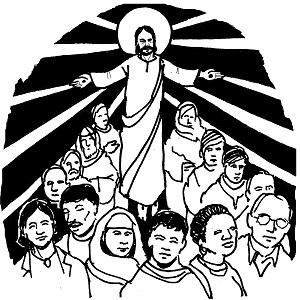
“I myself will give you a wisdom in speaking …” (Luke 21:16).
As the liturgical year comes to an end, the Lectionary is filled with disturbing apocalyptic themes. Luke wrote for his faith community some 50 years after the Christ Event, and he encouraged believers to find parallels between what happened to Jesus and what was happening to them under persecution. As Jesus was handed over, tortured, imprisoned and executed, so will some of them be betrayed, taken to court and even killed.
Luke presents the words of Jesus to reassure his community facing persecution that if this happens to you because you are a disciple, the Spirit will make you eloquent as you give witness in court. God will protect you so that even if your body suffers, you will possess perfect calm ("not a hair on your head will be destroyed").
In times of social disruption and change, fear often sweeps through the population. Scapegoating of particular groups has long been a divide-and-conquer tool used to deflect criticism from official corruption and failed policies. The greatest scandal of war is just how quickly people turn on their neighbors and even family members to avoid threats to themselves.
These betrayals run deep and defy reason and reconciliation, yet the church survived and grew not just in spite of persecution but because of it. The courage of the martyrs revealed the power of their beliefs and helped define a generation of Christians determined not to give in to division and intimidation.
The cost of discipleship is invisible in easy times, yet this may mask accommodation and lack of commitment for many. We go along to get along with social norms that foster prejudice and injustice because it does not affect us. We avoid conflict by staying within our own group. The test of faith is whether we can be agents of transformation and reconciliation in difficult times.
We live in such times. This week’s Thanksgiving table may offer an important test of family unity after painful national elections. Can we pray together? Can love run deeper than political ideologies? This is the meaning of the Eucharist, our "Thanksgiving." In the Breaking of the Bread – the sign of the death of the Lord—can we rise up in love and forgiveness? If the seams of family unity can hold us together in a time of crisis, there is hope for a season of difficult but essential national healing to preserve the common good.







